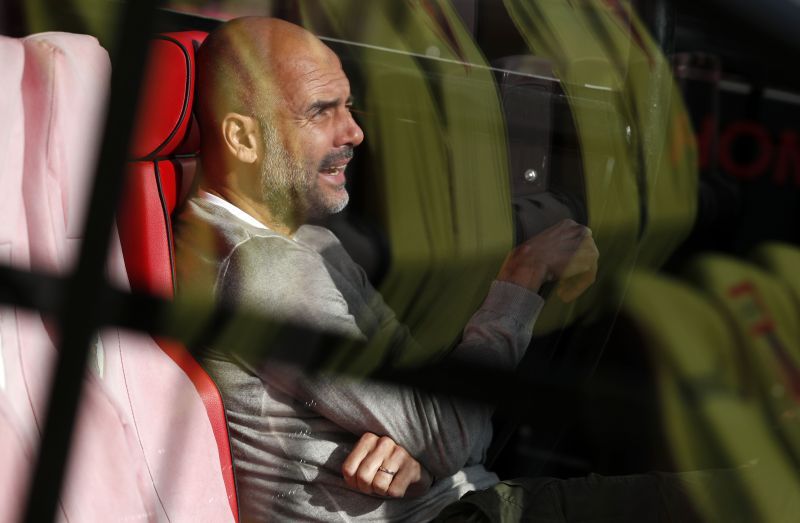
Is it time for Manchester City to move on from Pep Guardiola?
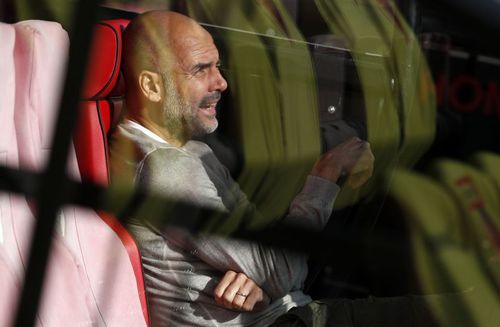
The defeat by Lyon in the quarter-finals of the Champions League brought to a close a long and exhausting season for Manchester City, Pep Guardiola's fourth in charge of the club.
While there was some domestic success in the form of a third-straight victory in the League Cup, it was a hugely disappointing season for Manchester City, considering their staggeringly high standards.
They failed to defend the FA Cup after losing to Arsenal in the semi-finals and were blown away by Jurgen Klopp's Liverpool in the Premier League where they finished in second place, a massive 18 points adrift of the winners.
However it was the desperately poor loss to Lyon that will really sting. With the format of the competition changing due to the implications of COVID-19, it was a wonderful opportunity for Manchester City to win the competition for the first time in their history and for Guardiola to win the trophy for the third time as a manager.
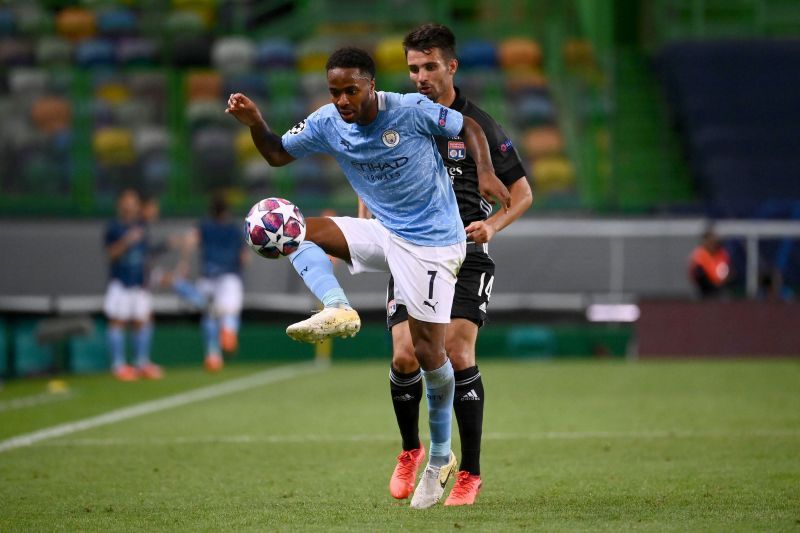
Having seen off Real Madrid in the much-delayed second leg in an empty Etihad stadium, Manchester City would have been feeling confident going into the mini tournament in Portugal.
In that second leg against Zinedine Zidane's side, Phil Foden was outstanding in a false-nine role in a 4-4-3 formation, with Gabriel Jesus and Raheem Sterling playing either side of him.
However, despite his impressive performance and generally excellent form since the return of football after the COVID-19 outbreak, Foden was the only change Guardiola made to his starting-eleven for the match against Lyon. The Englishman was left out in favour of Spanish centre-back Eric Garcia.
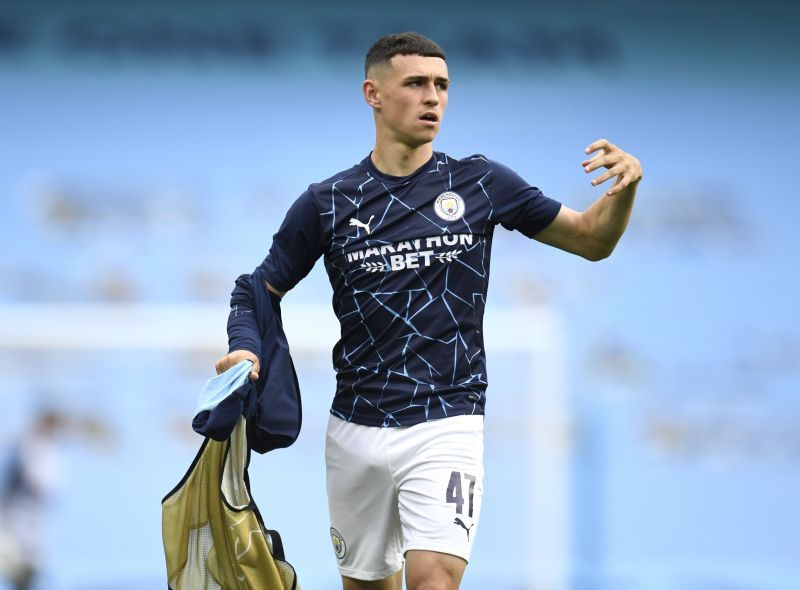
Despite making only one change to their personnel, it necessitated Manchester City to play an entirely different system.
Guardiola set his team up in an unfamiliar 3-5-2 formation with Kyle Walker and Joao Cancelo playing as wing-backs either side of a midfield-trio of Rodri, Kevin De Bruyne and Ilkay Gundogan.
Garcia slotted into the back-three between Fernandinho and Aymeric Laporte, with instructions to bring the ball out of defence. Sterling was entrusted to provide support to Gabriel Jesus who was moved to a more central role.
Manchester City were unlucky, as they always seem to be in Europe. They felt they should have had a free-kick in the buildup to Moussa Dembele's first goal, which put Lyon ahead. They may have had a case, but it did look accidental and the officials in charge agreed.
Then there was that extraordinary miss by Raheem Sterling, who somehow contrived to blaze the ball over the bar when presented with an open goal. A minute later, Lyon went 3-1 up.
Have Manchester City regressed under Pep Guardiola?
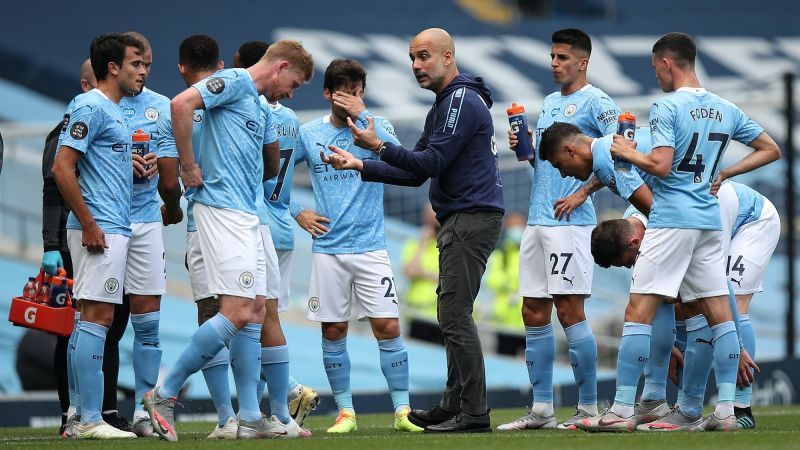
Luck was arguably against them in their defeat against Lyon, but even with all the events that transpired in the match, Manchester City deserved to lose against the French side. To put it simply, Guardiola got things wrong.
In 2019-20, Manchester City also seemed to have regressed domestically under Guardiola. That begs the question whether the club should consider a new direction with a change of management.
At the start of the 2020-21 season Guardiola will begin his fifth season in management at the same club, something he has never done before. Four years at Barcelona were enough before he needed to take a sabbatical, and then three years in charge at Bayern Munich followed.
The length of time in charge at Manchester City might mean that the intensity he brings to the role may have diminished and his message may have started to go stale. And while there has undoubtedly been success during Guardiola's time in charge at Manchester City, it has certainly been a mixed bag.
His first season in charge of Manchester City in 2016-17 was a disappointment as the club finished third in the league, 15 points behind Antonio Conte's Chelsea. City also lost in the FA Cup semi-final against Arsenal and went out in the fourth round of the League Cup to Jose Mourinho's Manchester United.
That was followed by two seasons of domestic dominance before the disappointments of 2019-20 materialised.
During this period, Guardiola's record in Europe has been incredibly disappointing, given the financial muscle available at his disposal. Manchester City lost in the last-16 of the 2016-17 Champions League to Monaco. The club then fell in the quarter-final stage of the competition in the next three seasons, doing so against Liverpool, Tottenham and Lyon respectively.
There is an argument that Guardiola's style of play is becoming outdated in the face of the aggressive pressing and counter-attacking styles adopted by the likes of Jurgen Klopp's Liverpool and Hansi Flick's Bayern Munich.
The comparison with Klopp, arguably Guardiola's biggest rival in management, is an interesting one but doesn't make for kind reading.
Since Guardiola came to England in 2016-17, he has won six trophies (eight if you include the Community Shield). During the same period, Klopp has won four, including the Premier League in 2019-20 and the Champions League in 2018-19. Both are impressive records.
However, Guardiola has had a net spend at Manchester City of nearly £500 million, while Klopp's is just £70 million. That is a remarkable difference in shrewdness in the transfer market exhibited by Liverpool that hasn't been matched by Manchester City.
Like his former adversary Jose Mourinho, Guardiola tends to be rigid in his ways. He generally plays the same style of football, regardless of his opponent, believing that his team has the tools to beat whoever is in front of them.
Guardiola can be stubborn in his tactics to the extreme, especially in Europe, as was evident in Manchester City's defeat to Lyon.
Does the Spanish tactician try to be too clever on the biggest occasions? It is an accusation that has been levelled at him more than once. And it is one that only Guardiola can answer by winning the Champions League with Manchester City in 2020-21, in what will very likely be his final season at the club.
Whatever happens in 12 months time, a change might be best, both for Manchester City and Pep Guardiola.